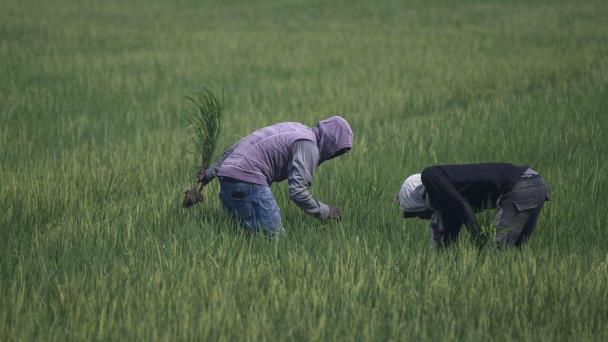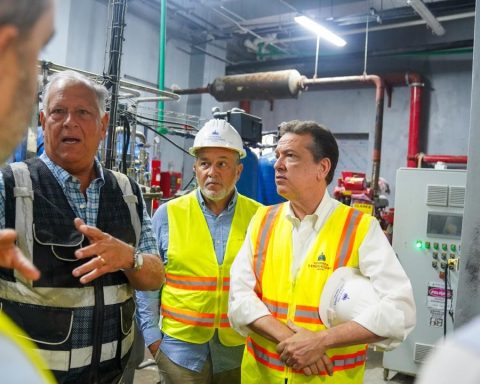The agribusinessmen analyze how to regularize their workers foreigners in the sector agriculture and encourage more dominicans are integrated into agricultural work before the policy of deportations that the Dominican Government has undertaken.
The executive director of the Dominican Agribusiness Board (JAD), Osmar Benitezemphasized that the employers in it sector agricultural sector are clear that they must have their workers “in order” with what the laws establish migratory Dominicans.
“The law It’s hard, but it’s law“, he noted, recognizing that there have been sectors that depend up to 90% on the hand of Haitian work, which have found themselves in trouble with the deportations massive.
He indicated that the lack of institutionality of the Haitian government to facilitate documents essential for their immigrants haitians (like passports) in the midst of the crisis that that country is experiencing has been one of the main obstacles for the regularization of the workers haitians in agriculture.
Added to this is the need for the Dominican government to find “solutions transitional” to the regularizationrecognized the Minister of Agriculture, Limber Cruz.
He indicated that there are alternatives, among which is the issuance of temporary cards to the workers who are waiting for the processing of their documents.
“There are many mechanisms. For example, if you have a Haitian worker who has been working on your agricultural property for more than two years, you can give him, in which they get their documentsa transitional card,” he pondered, adding that he will hold a meeting this week to analyze other possible exits for the regularization.
“Of course, it’s not a solution forever, because you have to legalizenot to the haitiansto all foreigners (in irregular status)”, he stated.
He sector life guard is the one that demands the most of this hand of work. The demands on this area, one of the most prominent in the exports agricultural, means that they have to even have a biometric record of the workers on their farms, Benítez remarked.
To this sector they follow him items such as rice and coffee, as well as livestock.
Nationalize the hand of work
In a conversation with members of the press within the framework of the event “Challenges and opportunities of agricultural trade in the face of trade opening, highlighting what is established in the DR-Cafta”, Benítez indicated that the sector is preparing to find a way to integrate more dominicans to the field.
“We have no choice,” he concluded, adding that it is a challenge for agriculture, since the dominicans (especially young people) lack interest for the agriculture.
He explained that, in his personal case, he had up to 77 haitians working, but now only has seven left, because he has incorporated technologies (such as the use of drones for fumigation), in addition to helping his employees with the financing of motorcycles, an incentive strategy with which he has been able to attract 26 workers dominicans.
He stated that the nationalization of the hand of work is a measure that has been studied in a work table, made up of representatives of the sector construction, agriculture and tourism, three of the productive segments that most depend on hand of foreign work.
“We have made a document addressed to the Dominican Government, which tells it: we do not want more haitians in the Dominican Republic. With what we have here, the job can be done. How is it regularized? Well, or the haitians are organized or the Dominican Republic can look for a mechanism, a formula for that,” he said.
He explained that he has held meetings with the Minister of JobLuis Miguel De Camps, to study promotion policies that attract dominicans to work in the field.
For his part, Cruz explained that the Ministry of Agriculture has sought to encourage producers to adopt new technologies that raise the productivityencourage generational change and train those who dedicate themselves to agricultural work.

















